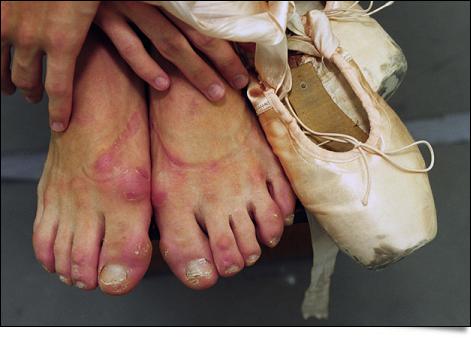 The word passion, in its oldest form, means “suffering.” When we talk about “the Passion” (with a capital “P”), we mean the suffering of Jesus in those final days of Holy Week. But when we talk about passion in the lower case we are talking about whatever it is that you are willing to suffer for. So, you look at the fingers of the fifteen-year-old boy who is learning to play the guitar. They are cracked and bleeding. Some of them have Band-Aids on them. He’s really not very good. But he picks up his guitar anyway, and struggles through another painful chord progression, and when you ask him why he just looks at you as if it were a stupid question, shrugs his shoulders and says:
The word passion, in its oldest form, means “suffering.” When we talk about “the Passion” (with a capital “P”), we mean the suffering of Jesus in those final days of Holy Week. But when we talk about passion in the lower case we are talking about whatever it is that you are willing to suffer for. So, you look at the fingers of the fifteen-year-old boy who is learning to play the guitar. They are cracked and bleeding. Some of them have Band-Aids on them. He’s really not very good. But he picks up his guitar anyway, and struggles through another painful chord progression, and when you ask him why he just looks at you as if it were a stupid question, shrugs his shoulders and says:
“It’s my passion.”
Or you look at the feet of the ballet dancer, red and callused, jammed into toe shoes so many times they look like the feet of a 90-year-old woman—hopelessly bent and crippled. You ask her why she keeps it up. Why doesn’t she just stop and give those tired feet a rest? She smiles to herself as she ties the laces and then looks up with a one-sentence answer:
“It’s my passion.”
Or the artist who has been up all night dribbling paint onto a huge canvas under floodlights, stepping back to see the way the paint swirls and flows, stroking it with his brushes, scraping it with a palette knife, pushing it into the shapes and places he can only see in his mind. At four o’clock in the morning—his back aching, his eyes bloodshot—he stops to make a fresh pot of coffee. Why do you do it? you ask. What’s so important about this? And he smiles over the rim of his coffee cup.
“It’s my passion.”
Your passion is whatever you are willing to suffer for. It could be your music, your dance, your art, or it could be something else. Buddha said “life is suffering”; it is the first of the Four Noble Truths. And if it’s true that life is suffering then it must also be true that life is worth suffering for. We do it all the time, don’t we? Your doctor says to you, “We’ve found blockage in four of your coronary arteries. We’re going to put you to sleep, stop your heart, open your chest, do a quadruple bypass, and then stitch you up and start your heart again, OK?” And what do you say? “OK.” People regularly endure the suffering of surgery and recovery in order to have a little more life. Because even with all the suffering that is in it life is the best thing we have ever known. It’s where we have found the love of family and friends, the beauty of a spring morning, the pleasure of a fine meal. We love life. We cling to it fiercely, with both hands.
Still, someone wiser than me has said, “Most people are not looking for something to live for so much as they are looking for something worth dying for.” And most of the time it’s not a thing at all. When I ask people if there is any cause, any movement, they would lay down their lives for they have to stop and think. But when I ask them if there is any person they would lay their lives down for, they answer yes right away.
This is where passion meets that word it is so often associated with: Love. It’s love that we suffer for. Whether it’s our love of people or love of life or love of what we do, it is love that is worth suffering for. Nothing else even comes close. And the extent to which we are willing to suffer for love says something about the breadth and height and depth of the love we feel. How much do you love me? Only as much as you are willing to suffer for me.
Jesus once said to his disciples that there is no greater love than this: that a man lay down his life for his friends. And then, within twenty-four hours of saying it, he was there on the cross doing it. When we see him hanging there we want to ask why. “Why are you doing this? Why are you putting yourself through it? Why don’t you let God get you down from there?” And even in his agony he is able to say, “Why? Why am I doing this?”
“Because I love you.”
“Because people are my passion.”
“Because you people are my passion.”
